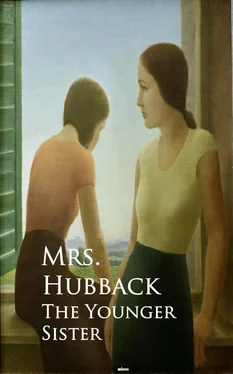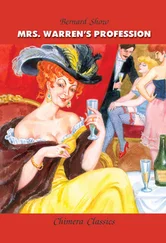"I hope her ladyship was not vexed at my brother's refusal last night?" said Mrs. Willis, with a little anxiety.
"I will not say she was not disappointed," replied Miss Osborne gaily, "we are so dreadfully dull and melancholy; but he has my full and entire forgiveness for his defalcation, on condition that he comes to-night to repair his errors, and brings you all with him."
Meantime Lord Osborne had edged his chair closer to Emma, and was in low tones pressing on her the request his sister had just made.
"Do come, you look too good-natured to say no—I am sure you must be monstrously obliging."—Emma shook her head and tried not to smile.—"And as to what your sister says about dress, that's nonsense; that is, I don't mean she talks nonsense, but it's foolish to care about dress—you look very nice—you always do—and we don't the least mind about your gown. My mother and sister have such loads of fine clothes themselves, that depend upon it they will not care the least for seeing any more."
Emma thought this extremely probable, but yet it did not seem quite applicable to their case. How, indeed, could any young lady be expected to derive consolation from the idea that her personal appearance could be a matter of total indifference to her companions. It was evident to Miss Osborne, that the ladies wished to discuss this question amongst themselves; she therefore dropped the subject, and after chatting good-naturedly on some indifferent topics, took her leave, with an assurance that if they decided in favour of the Castle, a carriage should be sent down to fetch them. She persuaded her brother to return with her, which was a particular relief to Emma, who had grown quite tired of his eyes.
Hardly was the house door closed on them, when Elizabeth drawing a long breath, exclaimed:
"Oh dear, Mrs. Willis, do tell me what we had better do, I am sure I would much rather refuse if we can, but then perhaps it would not be thought right—and I must say if I were not so frightened I should rather like to see the inside of the Castle, and how people go on there."
"I do not think you need be much alarmed," replied Mrs. Willis smiling good-humouredly, "you will survive it I dare say, if you make up your mind to go. Lady Osborne
is
rather stiff certainly, but though she does nothing to make herself agreeable, she is not unpleasant—not more so than a handsome piece of furniture—a picture, or anything of that sort. And I really think you would be more amused there than in our little drawing-room."
"But we have no dress fit for company," again urged Elizabeth.
"They are aware of the circumstances under which you came, and therefore must know you to be unprepared. I do not, therefore, think
that
need be an insurmountable objection. Your own inclination must decide it."
At this moment Mr. Howard re-entered the room. His sister immediately began to relate to him the fact of the visit and the invitation; but he cut her short by saying that he knew it; he had met Miss Osborne and her brother as they were leaving the house, and accompanied her part of the way home. His eyes were turned on Emma as he spoke, and an idea which suddenly occurred to her relative to his acquaintance with the young lady, caused her a sensation that brought the blood to her cheeks. Why she should color and feel warm at the notion that he had any particular regard for Miss Osborne, she could not exactly decide. It certainly could not concern her in the least if he had, and she would have been very glad to have kept her looks and feelings under better regulation, she was so very much afraid that he would guess her thought. This was an alarm entirely without foundation, as far from rightly guessing what was passing in her mind, Mr. Howard's fancy went off in a totally different direction. He attributed her blushes to some sentiment connected with the brother, not the sister, and supposed her to be pleased with the consciousness of these attentions being meant for her. For his own part he felt considerable surprise that Miss Osborne should so directly and decidedly countenance her brother's admiration. He had expected more pride from her.—Could he have heard the conversation that passed on the subject at Osborne Castle, he would have better understood the hidden machinery on which these matters turned.
"What makes you so anxious to cultivate an intimacy with those Watson girls," said Miss Carr to her friend, when she heard her announce an intention of calling on them.
"I like the looks of Emma particularly," replied the young lady addressed; "there is expression in her countenance, an air and manner in her motions which I admire."
"And do you run after all the girls who have a little manner or expression, Rosa?" enquired her friend again, with something of superciliousness in her tone.
"I don't like those who have not, Fanny—but there is more than this in my plan—I think Mr. Howard likes her."
"Well, and what does that signify to you? what have you to do with Mr. Howard's liking?" this question was accompanied with a sharp, interrogative look from Miss Carr, as if she strongly suspected her friend's motive.
"I have half a scruple about explaining to you, Fanny."
"Oh, pray throw it away then and explain it once. I am dying of curiosity to understand the motive of your manœuvres."
"I will tell you nothing whilst you look so much as if you think you understand all—your quizzical look provokes me to silence."
"And if you will not tell me, Rosa, I will just tell you what I think; listen—you think Mr. Howard admires Emma Watson—and you cultivate her acquaintance for the sake of thwarting their attachment. Is that worthy of you."
"Worthy indeed," cried Miss Osborne, throwing back her head with an air of disdain. "I might justly retort your question—upon my word, I am highly flattered by your gracious opinion of me. No, if I do stoop to manœuvre, it is not to dishonor our house, or to
promote
alliances unworthy of it. Now I will tell you my real motive—though positively even to you, I am half-ashamed of mentioning it. My mother—have you not observed—she is so very partial to—"
Miss Osborne paused in some confusion. Her friend looked puzzled.
"Partial to whom—to Emma Watson? I really don't understand."
"No, no, to Mr. Howard," replied the blushing daughter, in a low tone; "and I would give the world to see him married and out of her way."
"Very well—very reasonable," said Miss Carr, coolly, twisting her fingers through her long ringlets. "But how does your patronising this Emma promise any particular progress to Mr. Howard's passion? In my opinion, you had much better let them alone."
"I don't think so," replied Miss Osborne, decisively; "the Watsons have always been considered as very low in rank amongst visitable people. The few we know ourselves decidedly hold them cheaply—and I think it possible that, accustomed to superior society, Mr. Howard might hesitate a moment before throwing himself amongst a set so decidedly inferior to those with whom he is used to mix."
"He does not seem to feel any such nicety, since his admiration has begun, and will, no doubt, prosper without your intervention. I still repeat, you had better let them alone."
"But I have a great regard for Mr. Howard, and should like to be on good terms with his wife."
"Wait till she is in existence then."
"But if I slight her
now
, will she be more inclined to be sociable
then
?"
"You need not slight her—be civil if you like—but why seek her out unnecessarily?"
"Because I foresee that his marriage, whenever it takes place, will cause a
fracas
, and I should wish them both to feel they have a friend in me."
"Well, it is an affair that concerns you no doubt, much more nearly than me, and I cannot presume to dictate. But I think
Читать дальше












